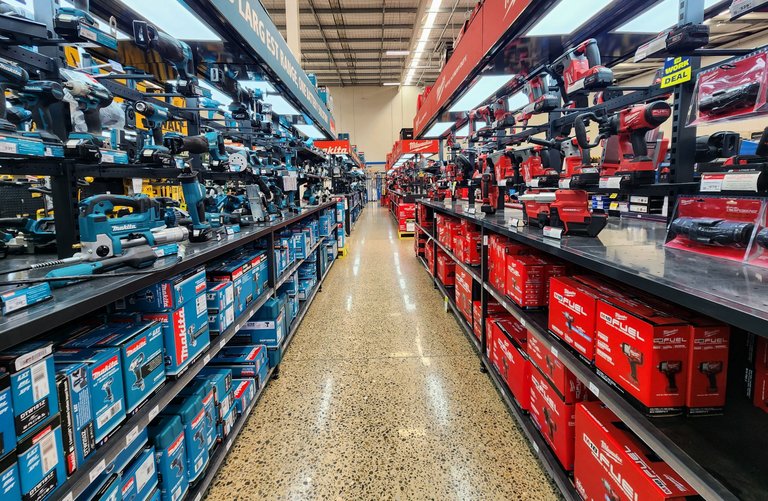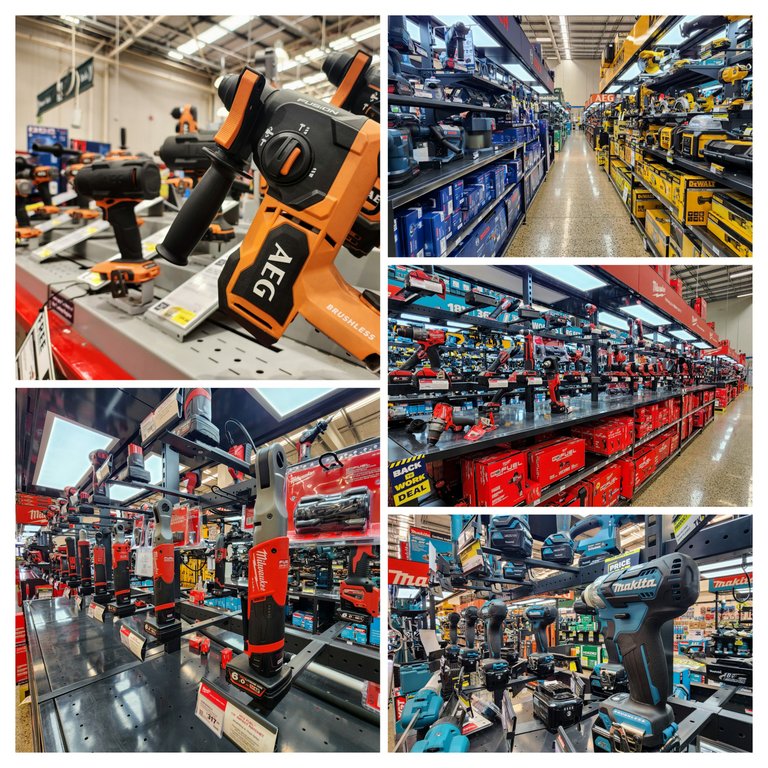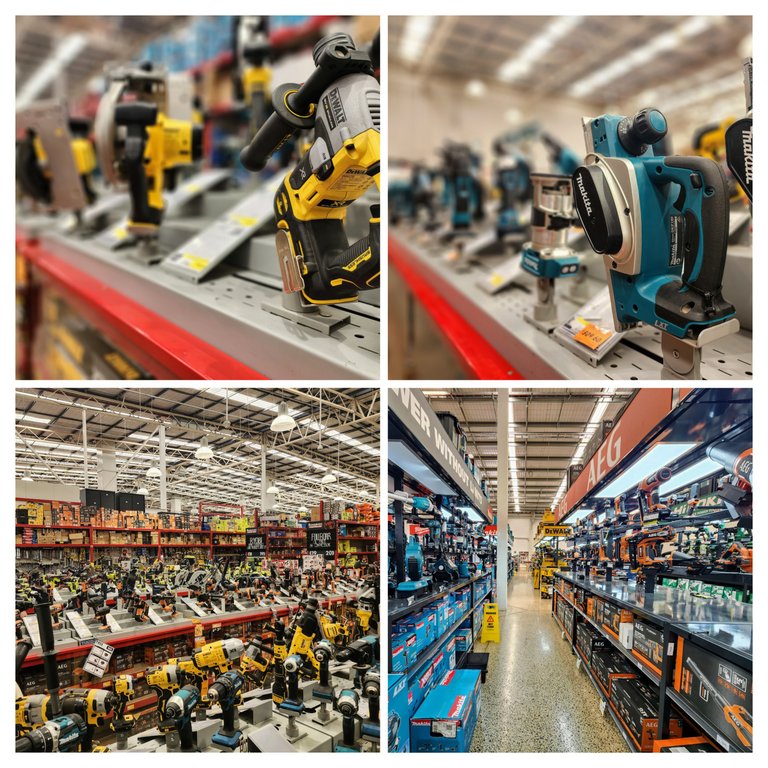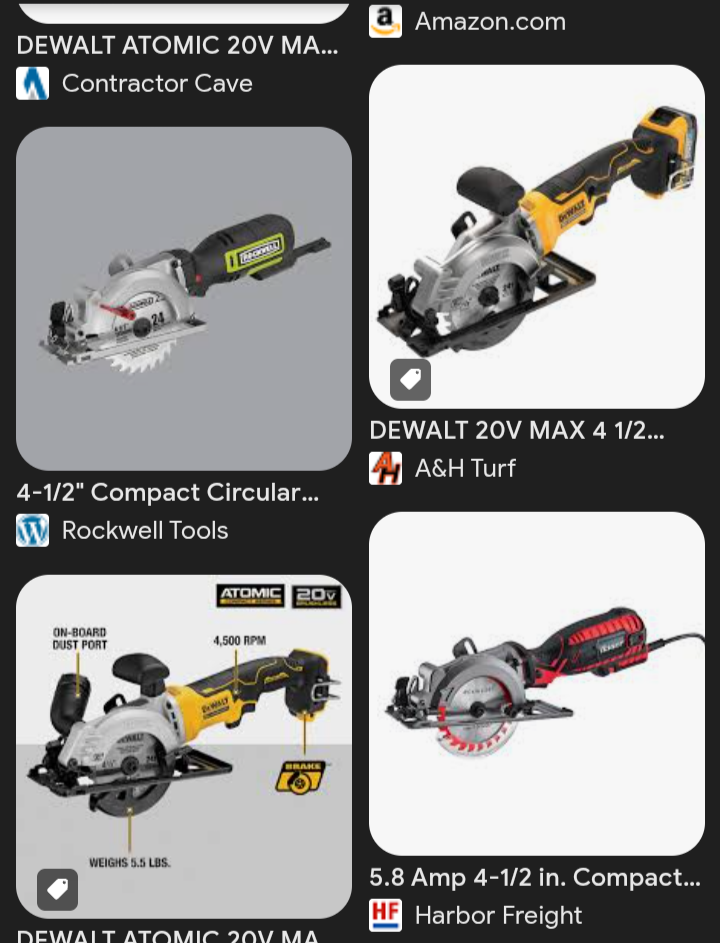
On Friday after work I headed to the hardware store, Bunnings, to get some things for a little project I'm doing this weekend and decided to investigate some tools I've been considering as well. I don't simply buy for the sake of wanting things and with tools and equipment I wait until the need exists then pick up what I need for that particular job if I don't already have it; this ethos has left me with a vast array of tools and equipment over the years - but there's always another project and the need for specific tools for the job.
Unfortunately I didn't find what I was looking for at Bunnings so ended up at a dedicated tool shop on Saturday morning, braving the 40°C heat in the process and...still didn't find what I was looking for.
The problem wasn't that there were none, just that I couldn't find one commensurate to my needs at a price I was willing to pay and buying a substandard tool isn't something I'm into. I know what'll happen, I'll just bite the bullet and get it done/bought, but today I walked away empty-handed which means my project will be delayed a little.
While at the hardware store, Bunnings, and the tool shop, TKD (Tool Kit Depot), I was struck by the sheer number and array of tools and equipment and was left wondering if multiple brands of the same thing is actually necessary in a world of diminishing resources.
I understand the need for competition and consumer choice - no one wants to see a single brand monopolise the market and drive prices up - but there was a lot of choice and...I don't know, it just seemed somewhat wasteful.

It used to be that a person who needed a tool or implement would go ahead and make it themselves.
Flint knapping is one example. Some bloke one and a half million years ago decided he needed to cut some flesh, skin an animal or create a weapon to cleave another person's head in twain with so he made it himself through trial and error. Another example is the wheel or the fulcrum and lever and the water pump (thanks Archimedes). Even the simple cup was something a person made themselves from clay, wood or stone and eventually basic metals, porcelain and so on. One didn't have the luxury to go to the store and find fifty seven aisles of cups to choose from; if one needed something it was made or traded for or bought...either way, there wasn't a store full to bursting point with exactly the same items but all in different colours like there is today.
I get it, time moves on and things become more modern...but when does it all become just a little too much?

I didn't leave the store feeling overwhelmed by the tools, I know my way around a tool, but I left feeling that somewhere along the way we've became wasteful and disrespectful of the planet's resources - which certainly are not keeping up with the demand for more and more consumer goods. I also thought about the individuals and corporations getting mega-wealthy through society's constant drive for more and more things...Jeff Bezos is a good example of one suck asshole, and the way we feed that greed through our own need for more and more...even though we don't always need it.
Things aren't going to change, not in my lifetime anyway, and I think that by the end of my life - twenty to twenty five years from now -we'll see a steep downward spiral and probably chaos ensue due to the misuse of the planet's resources, consumerism and human greed.
Too much? Yep, I think so.
Design and create your ideal life, tomorrow isn't promised - galenkp
Want a free Hive account? Click Here
[Original and AI free]
Image(s) in this post are my own


